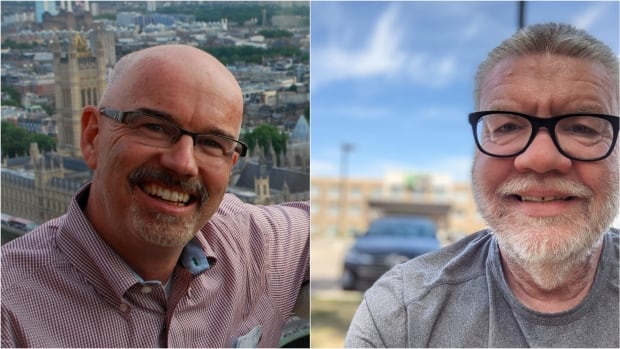
I swear to God: These ministers are taking a lighter approach to 'colourful language' in the church
CBC
This story contains strong language.
Growing up in Whitby, Ont., Daniel Benson lived in a household where swearing "was almost an art form."
His father was particularly deft with words that were "a little bit taboo," as he described it. And his mother was a Newfoundlander, "a people that are well-known for their colourful language and wonderful expressions," he told CBC's Tapestry.
It might be a surprising upbringing for Benson, who is now a United Church minister at East End Regional Ministry in Toronto. While he's reined in his use of swearing somewhat, he hasn't cleaned his language to a mirror-like sheen.
"Despite all the seminary training, years in the pulpit, endless hours sipping tea with little old ladies, men's breakfasts, basketball with teens, sitting with grieving families and celebrating joyous weddings, I confess I still haven't shaken my ability to swear with the best of 'em," he wrote in The Globe and Mail.
Benson is one of a handful of religious leaders who argue that in the right moment, the smart use of a four-letter word might be the most authentic and honest way to speak.
"Sometimes, the swear word is actually the most honest word," Allan Rudy-Froese, who teaches preaching at the Mennonite seminary in Elkhart, Ind., and at Conrad Grebel University College in Waterloo, Ont., told Tapestry's Mary Hynes.
"There's a kind of new honesty there about what's happening, and we're finding ways to put it into words, which is, I think, a very good thing."
Rudy-Froese doesn't go so far as to use curse words while speaking during a sermon in front of a congregation. But he said he's "intrigued" by others who have used strong language in their work, including Nadia Bolz-Weber, a pastor based in Denver known for her tattoos as much as her frank way of talking.
Benson says some longtime friends and family members have become "more guarded" about how they speak when he's in their company, apologizing if they use "a common swear word" within earshot.
"Part of it would be a bit of a joke: 'Oh, [we've] got to watch our language. Minister Dan is here," he said.
Rudy-Froese had similar experiences while working as a pastor in Thompson, Man.
"[People would] hear a few weeks later that I was a Mennonite pastor and they would say, 'Oh, you know, I think I didn't know you were a pastor. I'm sorry. I might have said some swear words, like three weeks ago.' And I would just laugh," he said.
"It's like, really? You don't think I've heard those words before?"





















 Run 3 Space | Play Space Running Game
Run 3 Space | Play Space Running Game Traffic Jam 3D | Online Racing Game
Traffic Jam 3D | Online Racing Game Duck Hunt | Play Old Classic Game
Duck Hunt | Play Old Classic Game











